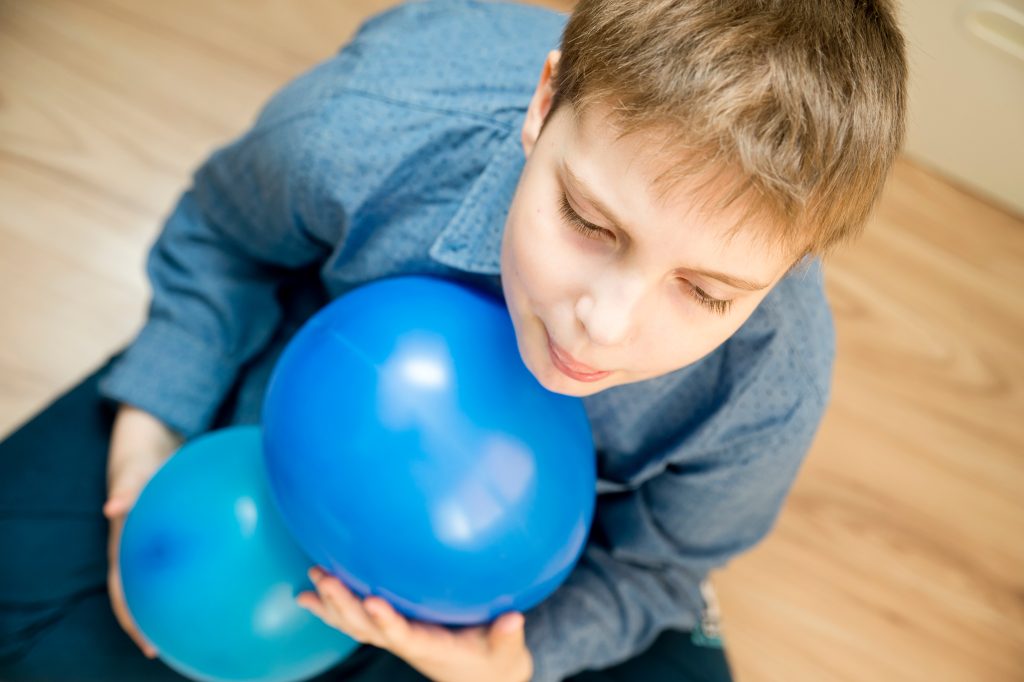If your child with autism has received an invitation to a birthday party, you likely have mixed feelings: excitement they were included in the festivities, and dread of all the possibilities this unpredictable event might hold.
For a child with autism, attending a birthday party can be both exciting and overwhelming due to the sensory stimulation and social expectations involved. As the event approaches, the more you prepare your child, the more likely it is that they will enjoy the event while managing potential stressors.
To create a more positive experience, and to help you feel a little less dread, use these four tips before your child attends their next birthday party.
Fill Your Child In On What To Expect
Begin by discussing with your child what the birthday party will entail. Explain the sequence of events, from the moment of arrival to singing “Happy Birthday” and opening presents. Use simple, clear language and reassure them that it’s okay to feel both excited and nervous. Discuss the types of games that might be played and the presence of other children, which can help in mentally preparing them for the social aspects of the event.
If you are unsure of the events, reach out to the host. Explain your child’s needs and the importance of knowing what to expect beforehand. Knowing the events to take place will significantly reduce your child’s anxiety.
Use Visuals To Help Prepare
Visual aids can be incredibly helpful for children with autism. Create a visual schedule or a storyboard of the party’s events. Include pictures or drawings of people clapping, balloons, cake, and party games. If you are able, prepare a social story and review it with them as the party approaches. Look on the internet for photographs of the venue and share them with your child.
Preparing with visual aids will help your child visualize and process the sequence of events at the party, again reducing anxiety about the unknown.
Create A Birthday Party Toolkit
A birthday party toolkit can be a lifesaver for children who might become overwhelmed. This toolkit can include sensory items your child uses to self-regulate, such as fidget toys or chewies. Also include calming toys or favorite small objects that provide comfort.
Noise-canceling headphones are a great addition, especially for children sensitive to loud noises. Safe snacks, for those children averse to certain foods, can ensure they don’t spend the time hungry. Add in a preferred activity to do if they need to step away from the party games as well. Having access to all of these items in their toolkit will empower your child to manage their needs more independently.
Plan Your Exit
Despite the best preparations, it’s important to recognize that your child might still become overwhelmed and need to leave the party early, or at least require regular breaks. If you see signs of your child needing a break, take them for a walk and ask if they would like to leave. Or, plan an exit strategy in advance. Discuss this plan with your child so they know there’s an option to leave if they start to feel uncomfortable.
Ensure the host understands this possibility as well. This strategy is not only comforting to you and your child, but also helps you avoid any sudden disruptions during the party.
Preparing a child with autism for a birthday party involves clear communication and well-thought-out preparation. Though it might be more time-consuming, these steps will significantly enhance your child’s ability to participate in and enjoy social events, making these experiences more enjoyable for everyone involved.
Gersh Academy offers a holistic education, catering to your child’s unique needs. Every student has access to the therapeutic support they need to live satisfying and fulfilling lives after graduation, as we hope every one of our students can enjoy all of life has to offer, including birthday parties. For more information, reach out here.
Resources:

